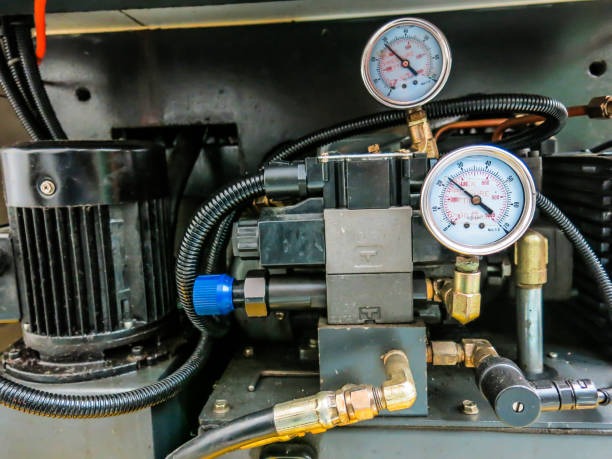Table of Contents
- The Temperature Impact: Why It Matters
- Cold Temperatures: Challenges and Solutions
- Working Through the Heat: Maintaining Efficiency
- Proactive Maintenance Tips
- Technological Advancements in Hydraulic Systems
The Temperature Impact: Why It Matters
Changes in temperature can greatly influence the efficiency and dependability of mobile hydraulic systems. Extreme heat may thin hydraulic fluid, reducing lubrication and leading to increased wear, while cold temperatures can cause fluids to thicken, slowing system response and potentially damaging components. These fluctuations affect efficiency and can contribute to long-term mechanical issues if not properly managed.
Prompt attention is crucial when systems show signs of temperature-related stress—such as sluggish performance or fluid leaks. Services like hydraulic mobile hose repair Charlotte NC can address such issues quickly, helping prevent more severe damage. Regular inspections and timely maintenance ensure that hoses and components remain in optimal condition, regardless of temperature swings, maintaining system integrity and minimizing downtime in demanding environments. Investing in temperature-resistant components can also enhance durability and system longevity.
Cold Temperatures: Challenges and Solutions
The onset of cold temperatures presents a unique set of challenges for hydraulic systems. As temperatures decrease, the viscosity of hydraulic fluid increases, leading to thicker fluids. This thickening creates higher resistance within the system, translating to increased energy consumption and mechanical wear and tear. This friction dulls performance and can result in premature system failures if not appropriately addressed. To combat these issues, operators often implement preheating mechanisms for systems or select low-temperature hydraulic fluids designed to retain fluidity under colder conditions.
Additionally, system components must be well-insulated to avoid direct exposure to freezing temperatures. This protection helps to stabilize operating conditions and reduces the potential for problematic thermal contractions or expansions within the hydraulic components.
Working Through the Heat: Maintaining Efficiency
High ambient temperatures can stress hydraulic systems because hydraulic fluid degrades more quickly, leading to component overheating. To mitigate this, it is crucial to have efficient cooling mechanisms that help maintain a stable fluid temperature and extend the system’s life. Regular monitoring of hydraulic fluid levels and selecting fluids designed to withstand higher temperatures are essential for preventing breakdowns and ensuring system efficiency and reliability. By balancing these factors, you can protect against costly failures and enhance on-site safety.
Proactive Maintenance Tips
- Integrate routine inspections to identify and address any system irregularities promptly.
- Adhere to a detailed and frequent fluid replacement schedule as system manufacturers recommend.
- Utilize advanced thermal imaging technologies to diligently track the heat distribution across system components, thereby understanding potential risk areas.
Committing to a robust maintenance program can significantly mitigate the impacts of temperature fluctuations on hydraulic systems. These proactive strategies enhance system performance, minimize downtimes, and extend equipment longevity, making them cost-effective over the system’s lifetime.
Technological Advancements in Hydraulic Systems
The landscape of hydraulic technology is constantly evolving, providing solutions for more resilient operations across various environmental conditions. Current technological advancements, including sensor technologies, allow for enhanced monitoring and management of hydraulic systems. These sensors provide real-time data, enabling operators to adjust fluid dynamics and balance thermal conditions with unprecedented precision. Coupled with predictive maintenance technologies, these innovations allow for the early detection of anomalies and promote preemptive adjustments, reducing the risk of failures.

